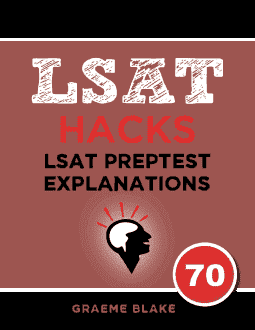DISCUSSION: Passage A mentions the study in order to introduce the phenomenon of rivalry.
Passage B mentions the study in order to disagree with certain interpretations of it. The author of passage B then introduces their alternate theory: we want to feel successful.
I found the passage B section of these answers harder. I would have said “to present a view that will be argued against”.
This shows why you can’t get stuck on prephrases. There are multiple ways to say anything. Instead of my version, you can also say: passage B mentions the study in order to introduce the main topic.
Also, the author of passage B technically doesn’t disagree with the study. They disagree with certain interpretations of the study. So the study itself isn’t introduced as a “view to be argued against”.
Meanwhile, passage A doesn’t introduce the study as the main topic. Most of passage A is about habituation, which has nothing to do with the study.
___________
- The author of passage A uses the study as evidence. It isn’t a view to be argued against.
- Same as A.
- The first part of this is fine. The second part is wrong. The author of passage B introduced the study along with a view that they disagreed with. There was no additional evidence for this view.
- CORRECT. Passage A uses the study as support for their idea: the phenomenon of rivalry.
Passage B uses the study as a way of launching into their main topic: the relationships between wealth, success, value and happiness. - The first part makes this answer wrong. The main topic of passage A was arguably habituation. The study only introduced the phenomenon of rivalry, which was the smaller part of passage A.
The second half sounds right. Though technically the author of passage B didn’t argue against the study itself. But I would have picked this answer if it had had the first half from answer D.


I think you mean Passage B instead of A in your explanation for answer E: “technically the author of passage A didn’t argue against the study itself”
You’re right. Fixed it, thanks!